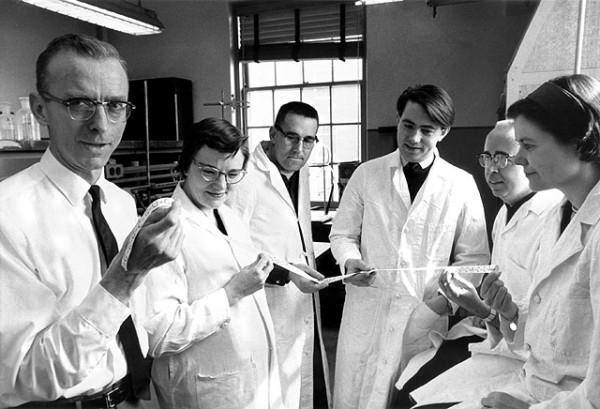By ivanwanjiku, | January 24, 2017

According to researchers, people will take a flight from all facts to protect all kinds of belief including their religious belief, political beliefs, and even personal beliefs.
A team of psychologists has identified some of the main factors that can cause people to reject science.
This apparently has nothing to do with how educated or intelligent the people are. The researchers found out that people who reject the scientific consensus on topical issues such as climate change, vaccines, and evolution are as invested in science and well-educated as the rest of the population.
Like Us on Facebook
The researchers have found out that the bone of contention when it comes to facts is that people think more like lawyers than scientists. This means that people tend to "cherry pick" facts and studies that support what they already believe to be truthful.
If a person does not believe that humanity is to blame for climate change, they will ignore all the scientific studies that support that belief, and instead, latch onto the ones that doubt this consensus. This phenomenon is known as cognitive bias.
"People treat facts as relevant more when the facts tend to support their opinions. When the facts are against their opinions, they don't necessarily deny the facts, but they say the facts are less relevant," said Troy Campbell from the University of Oregon, who was one of the researchers.
According to Campbell, people will take a flight from all facts to protect all kinds of belief including their religious belief, political beliefs, and even personal beliefs.
The researchers reached this conclusion after a series of interviews, as well as a meta-analysis of the research that has been published on the topic.
The research is yet to be published, meaning it is inconclusive. However, the results suggest that simply focusing on the evidence and data is not enough to convince a person to change their point of view.
According to the researchers, a change in belief could be achieved by looking into the "roots" of a person's unwillingness to accept scientific facts, and finding common ground to introduce new ideas.
-
Use of Coronavirus Pandemic Drones Raises Privacy Concerns: Drones Spread Fear, Local Officials Say

-
Coronavirus Hampers The Delivery Of Lockheed Martin F-35 Stealth Fighters For 2020

-
Instagram Speeds Up Plans to Add Account Memorialization Feature Due to COVID-19 Deaths

-
NASA: Perseverance Plans to Bring 'Mars Rock' to Earth in 2031

-
600 Dead And 3,000 In The Hospital as Iranians Believed Drinking High-Concentrations of Alcohol Can Cure The Coronavirus

-
600 Dead And 3,000 In The Hospital as Iranians Believed Drinking High-Concentrations of Alcohol Can Cure The Coronavirus

-
COVID-19: Doctors, Nurses Use Virtual Reality to Learn New Skills in Treating Coronavirus Patients







